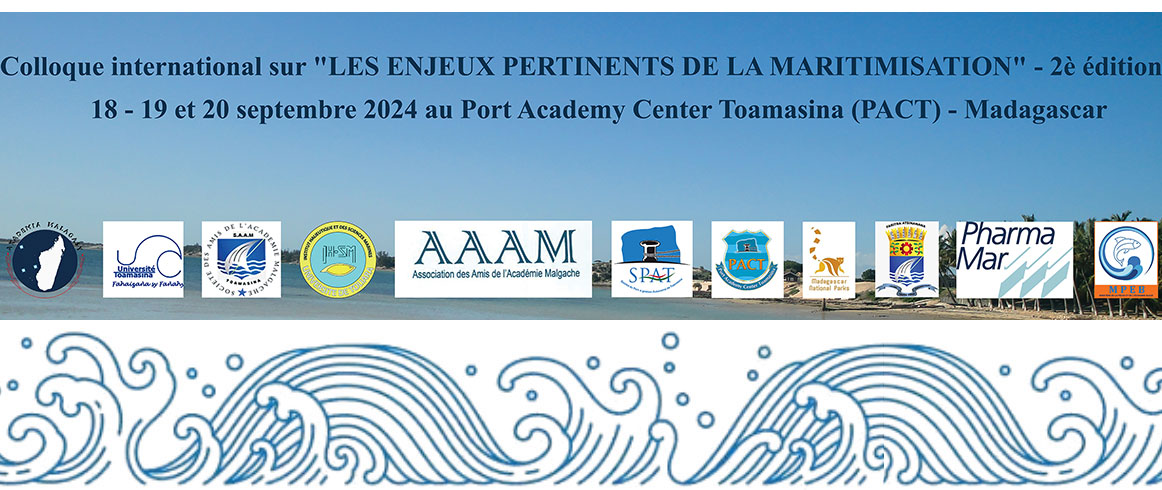Isolement et caractérisation partielle des nématodes phytopathogènes du gingembre (Zingiber officinale Roscoe) dans la Région d’Alaotra Mangoro, Madagascar.
HARISOA ROJOMITIA Sandie Olaf, ANDRIAMIARISOA Lovaniana Dinanirina,RAZAFINDRAKOTO Malalatiana, RAHETLAH Volatsara Baholy
 In Madagascar, ginger (Zingiber officinale Roscoe), produces an exceptional quality essential oil that
can be sold in international markets. Despite this potential, growers in the Alaotra Mangoro Region
are facing significant decrease of yields and crop quality over five growing seasons. A comprehensive
field was conducted among key stakeholders within the Alaotra Mangoro Region and soil and plant
samples from ginger cropping fields were taken. Typical symptoms indicating plant parasitic nematode
attack causing rotting followed by death of the plant were observed. Isolation from soil and plant
samples revealed the presence of plant parasitic nematods belonging to the following genders:
Helicotylenchus spp., Xiphinema spp., Tylenchus spp. and Meloidogyne spp. Identification of
pathogenic agents is essential for establishing an effective control strategy.
In Madagascar, ginger (Zingiber officinale Roscoe), produces an exceptional quality essential oil that
can be sold in international markets. Despite this potential, growers in the Alaotra Mangoro Region
are facing significant decrease of yields and crop quality over five growing seasons. A comprehensive
field was conducted among key stakeholders within the Alaotra Mangoro Region and soil and plant
samples from ginger cropping fields were taken. Typical symptoms indicating plant parasitic nematode
attack causing rotting followed by death of the plant were observed. Isolation from soil and plant
samples revealed the presence of plant parasitic nematods belonging to the following genders:
Helicotylenchus spp., Xiphinema spp., Tylenchus spp. and Meloidogyne spp. Identification of
pathogenic agents is essential for establishing an effective control strategy.
Key-words:
Alaotra Mangoro, exportation, gall, ginger, plant parasitic nematod, rotting
20/03/2025
Evaluation de l’état actuel de la sécurité alimentaire dans le Grand Sud de Madagascar.
RABENANDRASANA Hus Alpha Jacquis, RASOARAHONA Felamboahangy Henintsoa, RAOLISOA Ianja, RASOARAHONA Jean
 Using an approach based on the compilation of various sources of secondary data on physical and economic
access to and utilization of food, this article shows that in the Grand Sud of Madagascar, the current
state of food security is marked by a worrying trend. This situation is partly the result of various
factors, including unfavorable agro-climatic conditions, the reflection of widespread poverty, social
insecurity disrupting agricultural and pastoral livelihoods, and the precariousness of basic community
infrastructures. Harvest periods provide some households with ephemeral food security thanks to lower
food prices. However, they do not allow them to build up solid reserves to meet the challenges of the
lean season. Despite the challenges, there are opportunities to strengthen food security and population
resilience, notably by extending the dissemination of agricultural practices adapted to existing
environmental contexts, and by capitalizing on global initiatives led by various organizations engaged
in sustainable and resilient farming projects in the area, while responding to the multiple threats
that compromise the production systems of local farmers.
Using an approach based on the compilation of various sources of secondary data on physical and economic
access to and utilization of food, this article shows that in the Grand Sud of Madagascar, the current
state of food security is marked by a worrying trend. This situation is partly the result of various
factors, including unfavorable agro-climatic conditions, the reflection of widespread poverty, social
insecurity disrupting agricultural and pastoral livelihoods, and the precariousness of basic community
infrastructures. Harvest periods provide some households with ephemeral food security thanks to lower
food prices. However, they do not allow them to build up solid reserves to meet the challenges of the
lean season. Despite the challenges, there are opportunities to strengthen food security and population
resilience, notably by extending the dissemination of agricultural practices adapted to existing
environmental contexts, and by capitalizing on global initiatives led by various organizations engaged
in sustainable and resilient farming projects in the area, while responding to the multiple threats
that compromise the production systems of local farmers.
Key-words:
Food security, Malnutrition, Vulnerability, Seasons, Drought, Southern Madagascar, Livelihoods
27/02/2025





